What’s Happening to Opsgenie?
Change is coming for Opsgenie users. Atlassian has announced that
Opsgeniewill be discontinued and will no longer be available for purchase, effective June 4th, 2025 (the Opsgenie end of sale date). Current customers will have uninterrupted access for two years until Opsgenie end of support on April 5th, 2027. If your organization relies on Opsgenie for incident management and alerting, now is the time to evaluate your next steps.
The good news? Atlassian isn’t leaving you without options. Whether you transition to Jira Service Management (JSM)—which now includes Opsgenie’s core capabilities—or explore Atlassian Compass for software component tracking, there are solutions to ensure business continuity. However, making the right choice requires understanding how these tools align with your workflow (Opsgenie vs Jira Service Management and Compass).
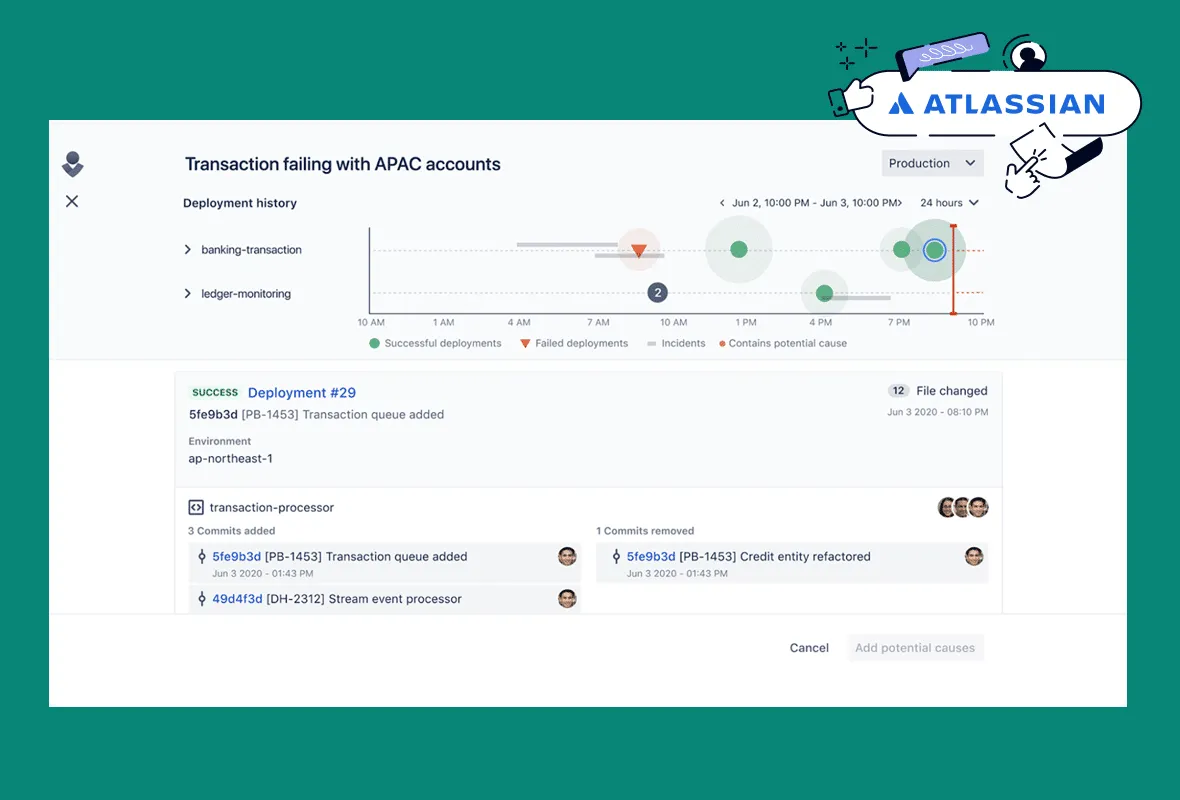
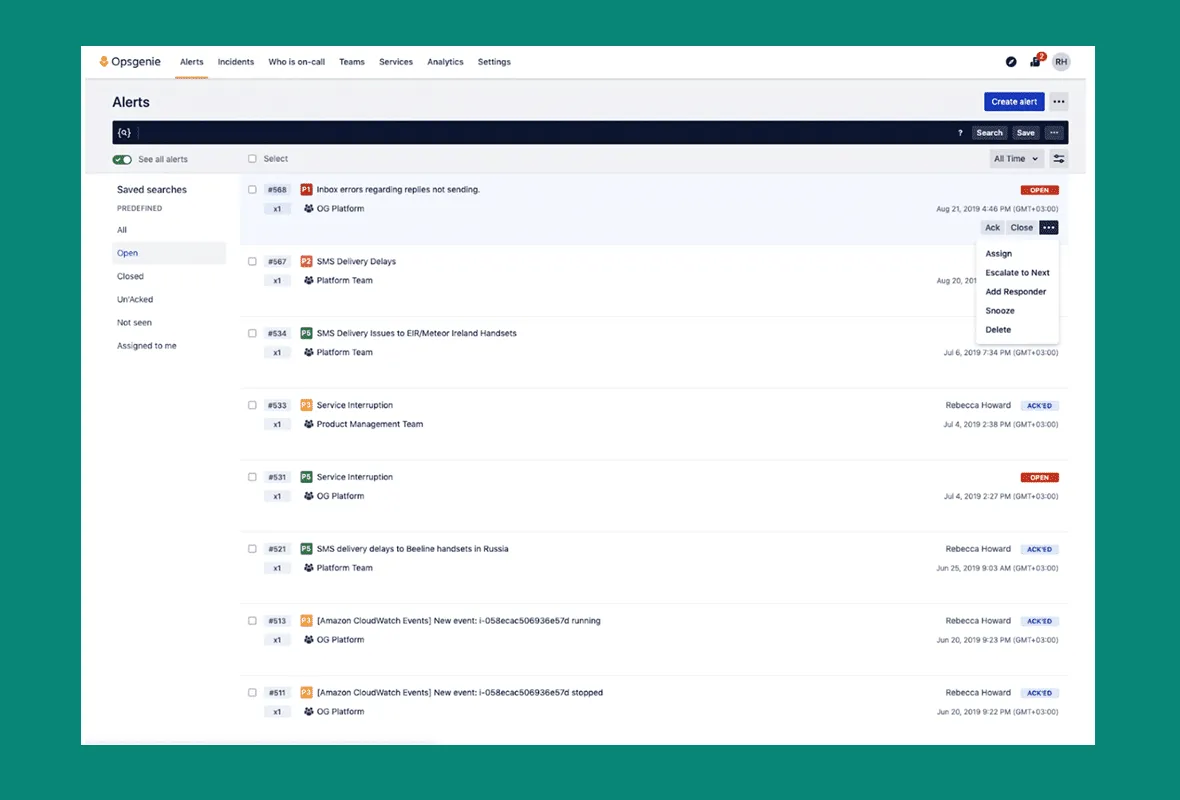
For organizations relying on Opsgenie for incident management, Atlassian recommends transitioning to Jira Service Management (JSM).
Those using Opsgenie primarily for alerting and on-call scheduling may find
Compassa more suitable Opsgenie alternative. With these options, customers can streamline their workflows and take advantage of deeper integrations within the
Atlassian ecosystem.
In this guide, we’ll explain why Opsgenie is being deprecated, what this means for your team, and how you can transition smoothly to a future-proof solution. Let’s dive in.
Why is Atlassian Announcing the Opsgenie End of Life?
Atlassian’s decision to announce the Opsgenie end of life aligns with its long-term strategy to consolidate and enhance its product suite. By incorporating Opsgenie’s core capabilities directly into JSM, Atlassian aims to offer a more
comprehensive incident management solution
. This shift eliminates the need for separate tools and ensures a more seamless experience for teams managing services within a single platform.
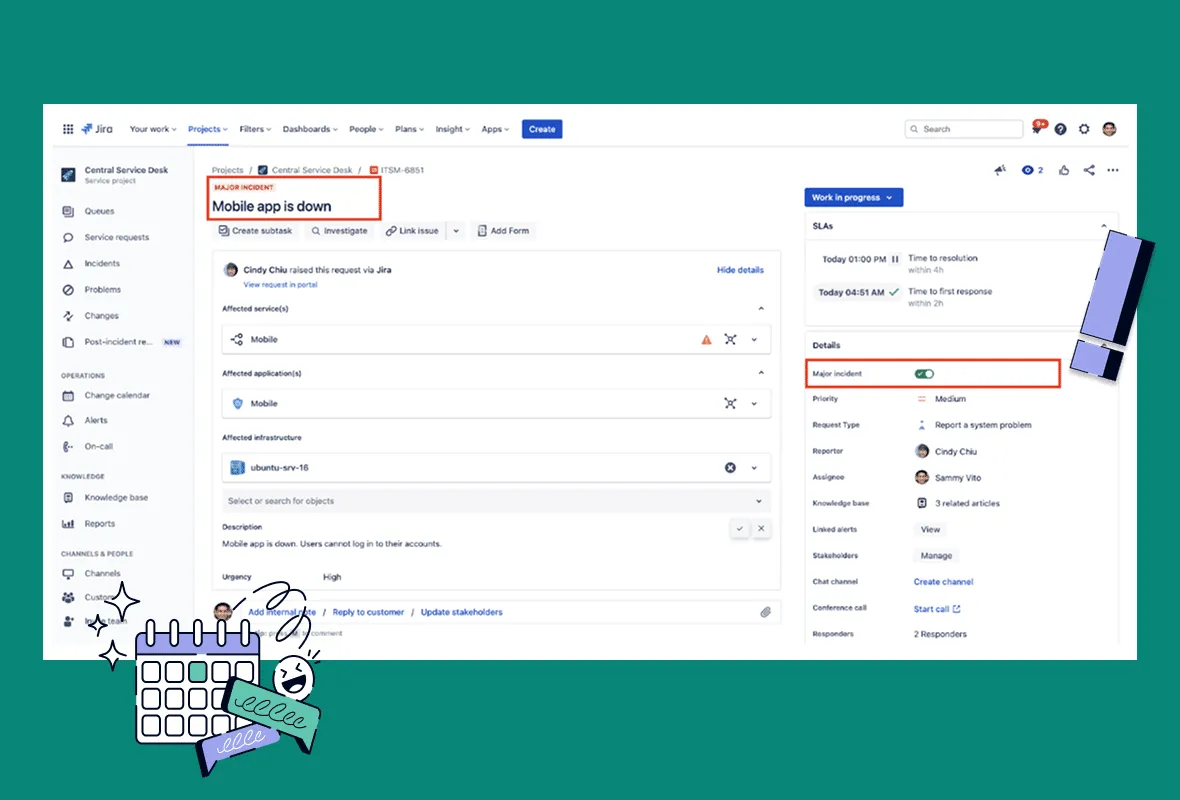
Example using Jira Service Management to mark a major incident
Source: AtlassianBy migrating to JSM, customers benefit from a unified system that integrates
incident response with service management
, reducing operational complexity. Additionally, JSM offers extended ITSM/ESM functionalities, including service request management, change management, and problem resolution, helping teams work more efficiently.
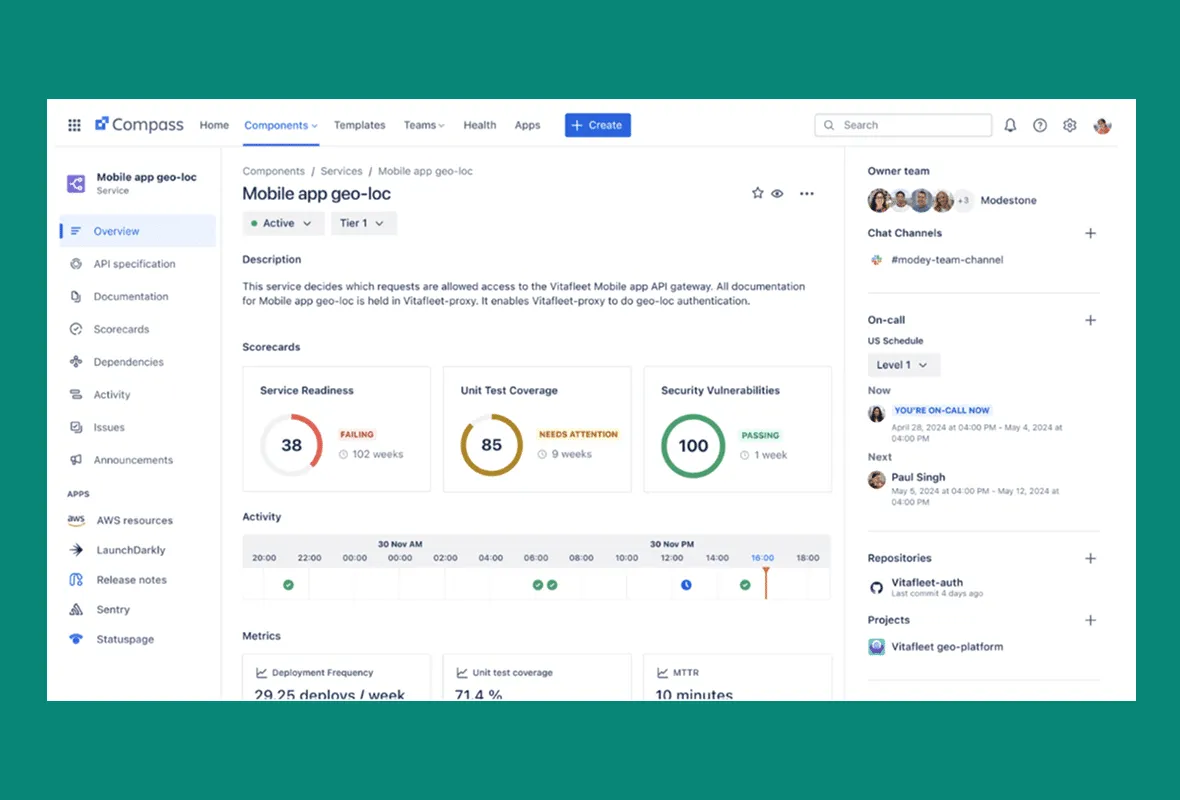
Example of Compass for comprehensive software component cataloguing
Source: Atlassian
What the Opsgenie End of Support Means for Users
If your team currently uses Opsgenie, now is the time to assess how your team will move forward with the Opsgenie end of support approaching. Once this is decided, your team will also have to decide how your team will migrate to a new tool and select an Opsgenie replacement that fits your business needs.
(Tip: If you need help navigating the transition, Seibert Solutions provides migration guidance and Atlassian stack assessments to ensure your organization selects the right path forward.)
Opsgenie Discontinued: What Customers’ Migration Experience Looks Like
On the Opsgenie homepage, customers will be provided information and links to aid in the migration process and clarify options.
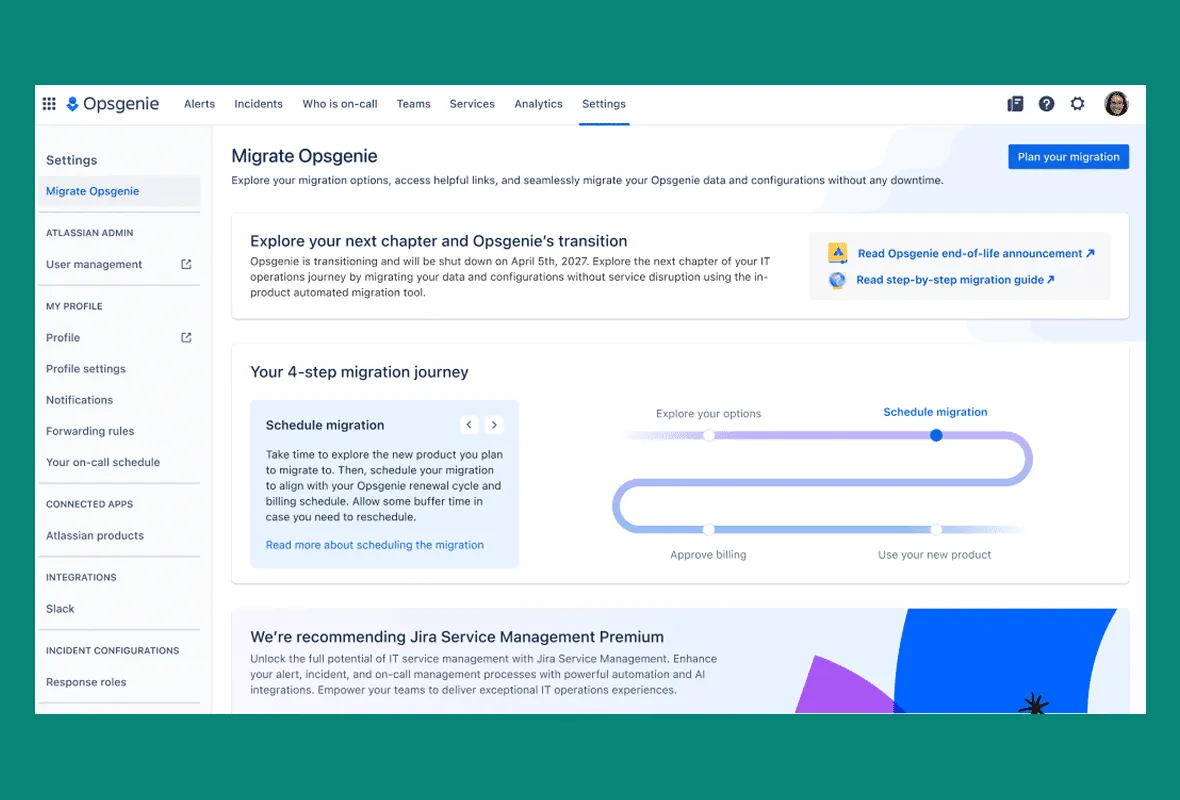
There is an in-app guide to help customers navigate changes, including incident statuses and priorities, and adjustments to user roles, ensuring a smooth transition to JSM or Compass.
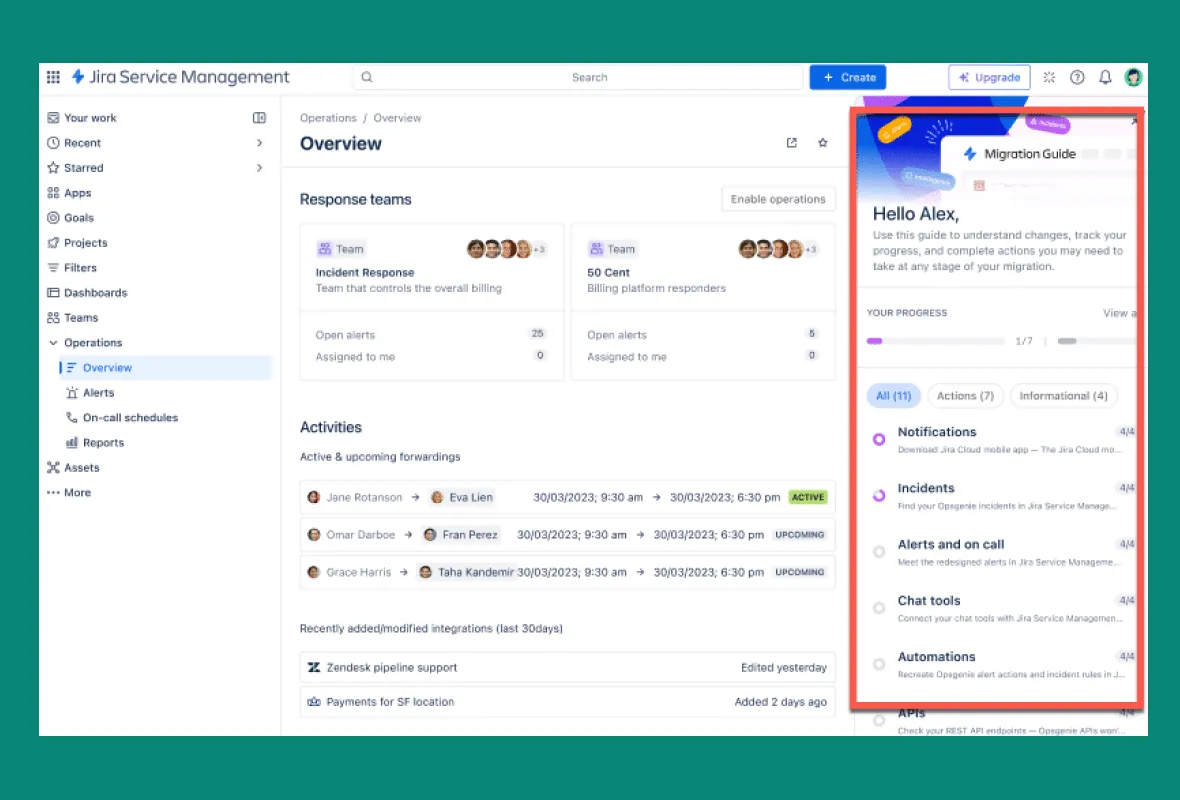
Customers will also be able to use the recommendation engine, which provides personalized recommendation on which products and which edition they should migrate to, based on their Opsgenie plan and usage.
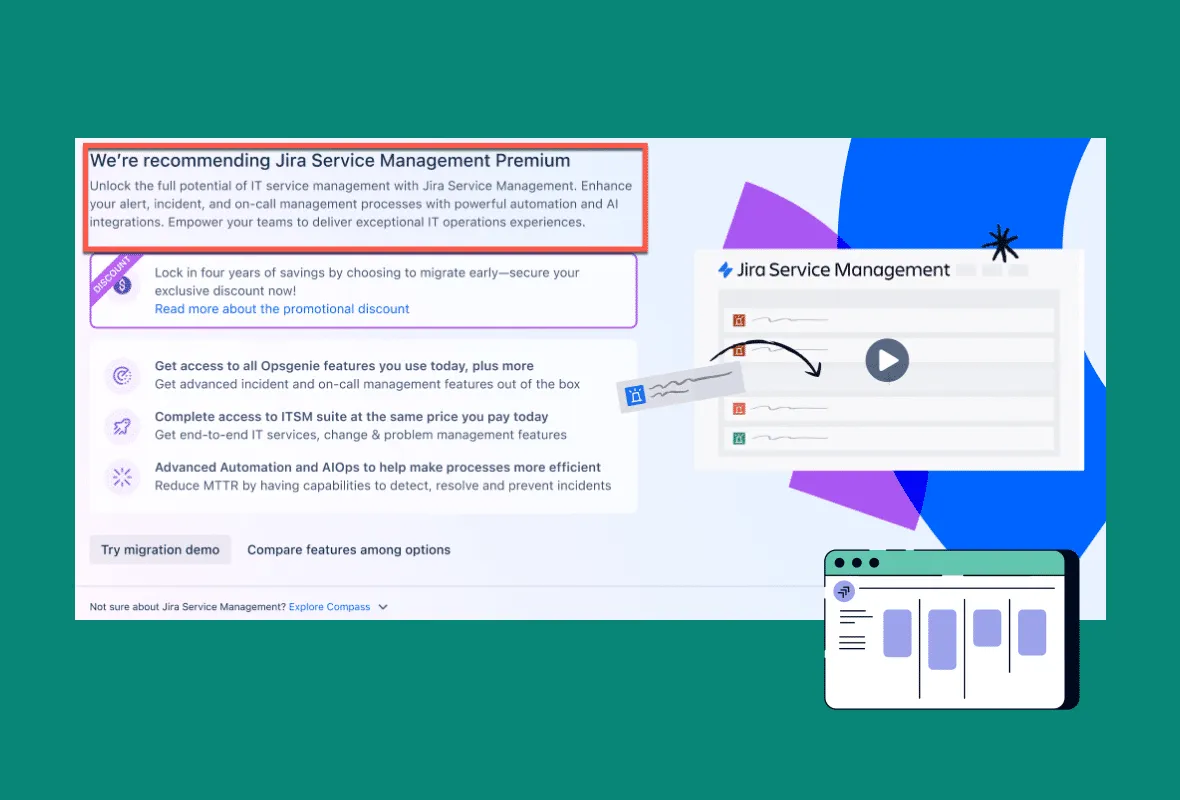
Moreover, before selecting a specific product to migrate to, customers will be able to take advantage of a 30 day migration trial demo. This trial enables users to plan and test within a sandbox environment, ensuring seamless integration of current Opsgenie workflows with Jira Service Management or Compass.
Opsgenie vs Jira Service Management: Is JSM the Right Fit?
If you are interested in JSM - Opsgenie’s core alerting and on-call scheduling features are embedded within JSM, allowing for a smoother migration. However, if you use another service management tool alongside Opsgenie, you may need additional support to ensure a seamless transition.
For teams already leveraging JSM alongside Opsgenie, aligning configurations and migrating custom workflows will be critical. Ensuring alert handling integrates properly with JSM’s incident queues, SLAs, and notifications is a key part of the transition process. However, teams can make the shift without disruptions with the right approach.
Data migration is another important factor. Exporting and importing alert history, incident logs, and schedules is necessary to maintain compliance and continuity. Additionally, if Opsgenie was previously integrated with third-party tools like Datadog or New Relic, teams may need to rebuild or reconfigure those connections within JSM.
This is where many organizations consider the trade-offs of Opsgenie vs Jira Service Management, and why additional planning is crucial.
Considerations for Opsgenie Users Without JSM
For Opsgenie users who have not yet adopted JSM, this transition presents an opportunity to explore JSM as a comprehensive service management solution.
JSM is built natively within the Atlassian ecosystem (meaning it seamlessly integrates Jira Software, Confluence, Bitbucket, etc.) If your organization already relies on Atlassian tools, JSM ensures a unified experience, reducing the need for multiple platforms! Moreover, JSM is designed for service management, IT operations, and incident response (and can easily be used by your HR, IT, and finance teams). This includes SLA tracking, request automation, asset management, and change management. The end of Opsgenie might be the push you’ve been waiting for in unlocking the power of Atlassian’s entire ecosystem.
Opsgenie Compass: An Alternative for Developers
However, in reality, it could be that JSM is not the right fit for your organization. If this is the case, alternative solutions should be evaluated to ensure business continuity! Atlassian’s Compass might be a better Opsgenie alternative depending on your needs. This product is a developer experience platform that helps teams adopt a better way of working with distributed software. In other words, it acts as a single interface for tracking, navigating, and managing software components and dependencies. If your business focuses on developer experience and software component management, rather than service management - this might be better suited for your business needs compared to JSM (Opsgenie Compass).
Preparing for the Opsgenie End of Support with Seibert
Seibert Solutions can assist organizations in transitioning from Opsgenie to JSM or Compass. Seibert offers tailored migration services, ensuring that workflows, integrations, and automation are properly configured. With the April 2027 deadline approaching, now is the time to start planning. Contact us to ensure a smooth transition away from Opsgenie.
In addition to hands-on migration support, Seibert can help customers evaluate the best path forward by:
- Advising on JSM licensing models to ensure teams adopt the right edition without overspending.
- Assessing whether Compass is the right fit based on your team’s developer experience and software component management needs.
- Conducting a full Atlassian stack assessment to identify potential cost savings and opportunities for deeper integration across your toolset.
By combining migration expertise with strategic guidance, Seibert ensures that organizations not only replace Opsgenie, but also optimize their Atlassian ecosystem for the future.


